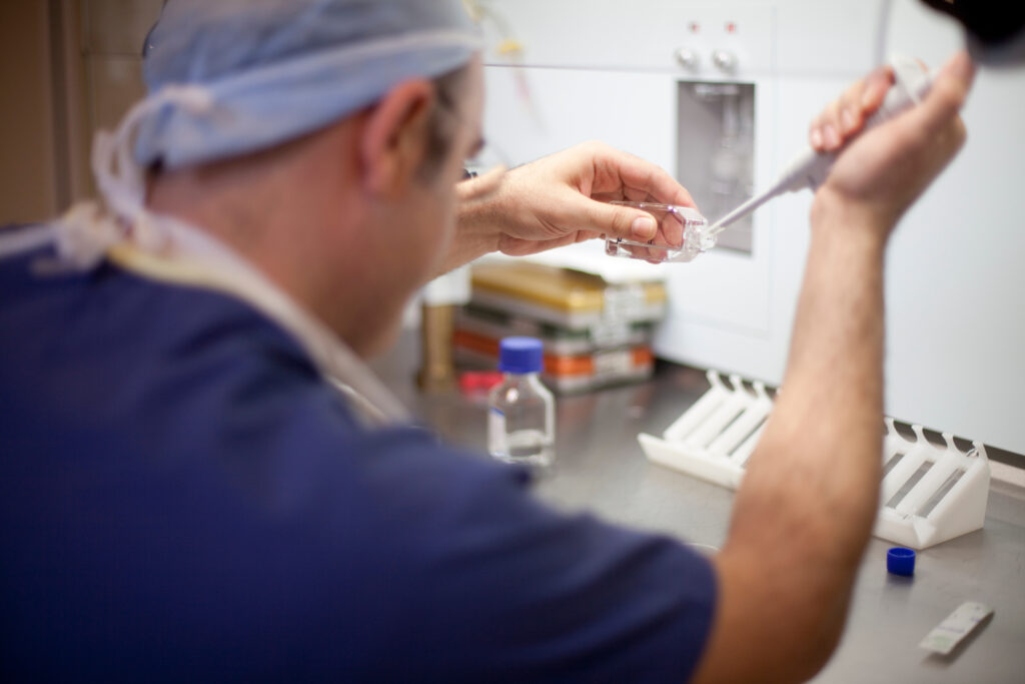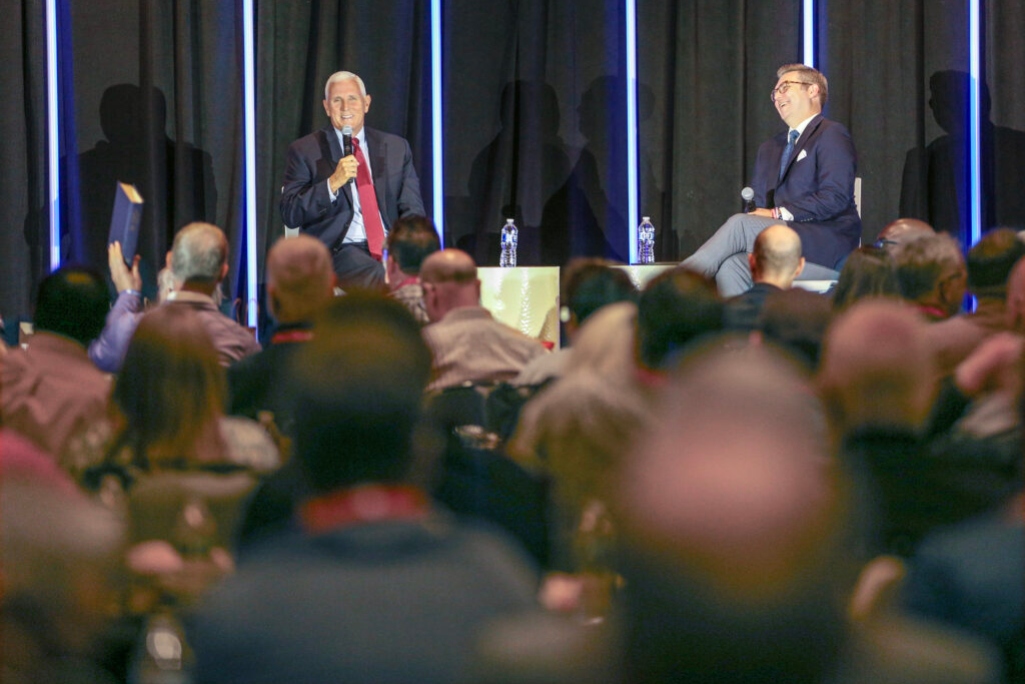
Human eggs gathered through in vitro fertilization are prepared for freezing and storage.
WASHINGTON (BP)—Baptist ethicists and a state convention leader have decried a Virginia judge’s ruling that human embryos are property in a decision in which he cited pre-Civil War state laws regarding the distribution of slaves.
“As there is no prohibition on the sale of human embryos, they may [be] valued and sold, and thus may be considered ‘goods or chattels’ within the meaning” of a state law, said Richard Gardiner, a judge in Fairfax Circuit Court. Gardiner issued his preliminary ruling Feb. 8 in a case involving the two frozen embryos of a divorced couple.
In his nine-page opinion, Gardiner cited Virginia laws prior to 1850 that regulated the dispersal of slaves as personal property.
Southern Baptist ethicist Jason Thacker said of the ruling, “The value of a human life is fundamentally different from that of mere ‘property’ as it is rooted in the way that God has created each of us — from the smallest among us in embryonic form to natural death — in His very image.
“Humans are not some thing, but rather someone made by God and endowed with dignity by our creator,” said Thacker, chair of research in technology ethics for the Ethics & Religious Liberty Commission (ERLC) and director of its Research Institute.
“While this decision is not final, drawing a comparison between the grave dehumanization of our fellow image bearers in the practice of chattel slavery and the degradation of human life wrought in these biomedical techniques is deeply abhorrent and antithetical to the Christian ethic,” he told Baptist Press in written comments. “As is so often the case with technology and medicine, these types of innovations have long outpaced our ethical evaluation and reflection.”
C. Ben Mitchell, a leading evangelical bioethicist and fellow with the ERLC’s Research Institute, called Gardiner’s ruling “a gross injustice.”
“First, that he uses as legal precedent rulings that applied to American chattel slavery is grotesque,” Mitchell told BP in a written statement. “Time — and a civil war — proved the immorality of regarding living members of the human race to be property. The basis for the judge’s ruling is like appealing to the laws in Weimar Germany under Adolf Hitler to justify involuntary euthanasia.
“Second, although there may not be laws against buying and selling human tissues, it is illegal to buy and sell living human organs in the United States,” said Mitchell, a member of the National Institutes of Health Human Fetal Tissue Research Ethics Advisory Board in 2020.
“Surely, that alone is sufficient grounds for not treating living human embryos as property. Custody law, not property law, is the appropriate juridical category in the case.”
Brandon Pickett of the Southern Baptist Convention of Virginia (SBCV) told BP, “The SBCV has always stood for and continues to stand for human life. We think it’s unconscionable that any judge or anyone at all would ever consider any human being as property.
“We know that God created each and every one of us with value, so much so that He sent His only Son Jesus to die for us,” said Pickett, the SBCV’s director of strategic initiatives and communications. “We know we have eternal value, and so we stand with that.
“We find it abhorrent to ever call a human being property. Embryos are human. So why would we ever go back to a time when humans were thought of as property?”
In the case, Honeyhline Heidemann and Jason Heidemann divorced in 2018 with two embryos conceived through in vitro fertilization in frozen storage. Before the divorce, they agreed in a property settlement that neither of them would remove the embryos from storage pending a future agreement between them or a court order.
Honeyhline Heidemann has made multiple attempts since the divorce to obtain the embryos for implantation, but her former husband has objected. Gardiner initially ruled in December to sustain his objection. The embryos are not “goods or chattels” according to Virginia law, he decided.
Upon Honeyhline Heidemann’s request he reconsider, Gardiner said in overruling her husband Feb. 8 the former spouses both admitted the embryos “are considered goods or chattels.”
Gardiner also reviewed the “origins and evolution” of a 1950 state law regarding the division of property and vacated his December decision. He said Virginia laws from 1819 and 1849 showed slaves were considered personal property not attached to the land. The current law therefore “must be interpreted as including personal property not attached to the land as ‘goods or chattels,’” he wrote.
He “was unable to find any Virginia law prohibiting the purchase or sale of human embryo[s], nor has either party cited a federal law prohibiting the activity,” wrote Gardiner, who still must issue a final decision.
(EDITOR’S NOTE – Tom Strode is the Washington bureau chief for Baptist Press.)


